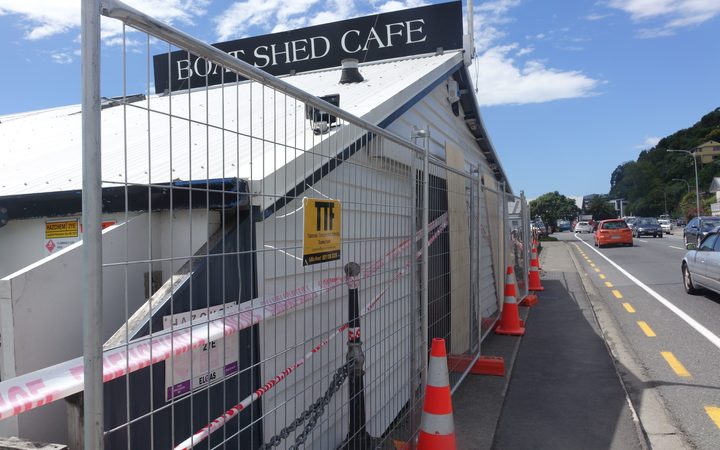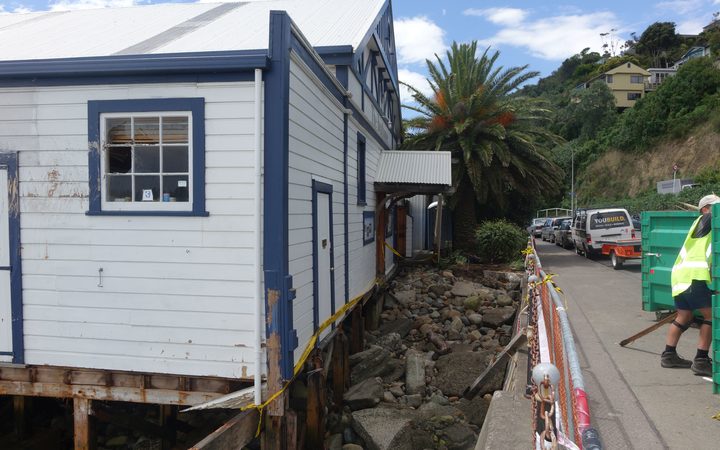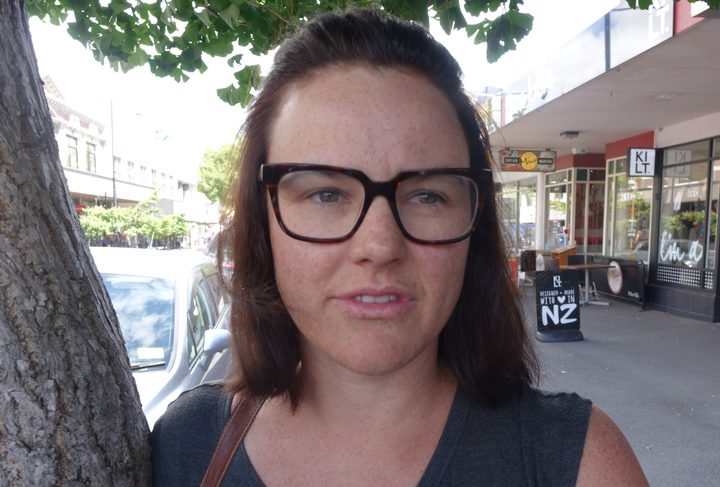“This
event was profound in its implications. Arterial roads, key parts of
some towns and cities and plenty of beach front properties just got
notice of their future lack of viability. It was jaw dropping. The
disruptions are going to be staggering and still most leadership will
barely make mumblings of moronhood as a response”
---Laurence Boomert
Nelson
storm damage prompts tough conversations - mayor
Homes,
businesses, roads and cycleways were no match for the storm surge
that raced into Nelson's shallow bays and inlets like a river in
flood.
 The
Boat Shed on Nelson's waterfront took a pounding in the
storm. Photo: RNZ / Tracy Neal
The
Boat Shed on Nelson's waterfront took a pounding in the
storm. Photo: RNZ / Tracy Neal
2
February, 2018
Ex-tropical
cyclone Fehi smashed
into much of the south and west of the South Island yesterday,
blocking roads, bringing down power lines and causing widespread
damage.
As
the huge waves clawed at shorelines, and rushed into people's homes,
Nelson sailor and charter boat operator Martin Holmes decided to ride
out the storm on his boat in the harbour.
He
said conditions were like nothing he'd seen before.
"The
pressure of the waves under the wharves was like setting off
blowholes on the West Coast - there were these geysers surging up
from under the wharf.
"Just
looking along the waterfront ... the waves were enough to lift those
big concrete pads in front of the yacht club and burst through the
floor of the other places [The Boatshed Cafe and the Boathouse
concert venue]."
People
were forced from their homes in Monaco, near Nelson Airport, Ruby Bay
in the Tasman District and businesses on Mapua wharf closed when
police advised people to leave.
 The
Boathouse venue on Nelson's waterfront took a pounding in the
storm. Photo: RNZ / Tracy Neal
The
Boathouse venue on Nelson's waterfront took a pounding in the
storm. Photo: RNZ / Tracy Neal
Nelson-Tasman
civil defence controller Roger Ball said yesterday's relief efforts
have moved up a gear today.
"We've
got Urban Search and Rescue, a Red Cross team, council building
inspectors and structural engineers, and they're going door-to-door
in the affected areas. What we're trying to do is find out where the
pain-points are and connect people with those that can help them,"
Mr Ball said.
The
co-owner of a coffee roastery on the Mapua wharf, Ali Slotemaker,
said people did not take the storm seriously at first.
She
said people on the wharf were getting worried long before high tide.
"The
tide was looking high and the surge was quite aggressive, so the
police and civil defence cleared the Mapua wharf area by about
11.20am.
"We
tried to come back later to get something out of our business and
were told we're not allowed in the area."
Ms
Slotemaker said the sea stopped just short of their business - set
back some distance from the Mapua Channel.
She
said if it happened once it could happen again, and it was likely to
trigger conversations in the community about future development.
 Ali
Slotemaker Photo: RNZ / Tracy Neal
Ali
Slotemaker Photo: RNZ / Tracy Neal
Nelson
Mayor Rachel Reese said the city has some serious thinking to do.
"Yesterday
we saw a volume, a speed and a power of water that we haven't seen
before. I know there's been climate-change sceptics out there - those
who ask if it's weather or climate-change.
"But
the reality is we are going to see more and more storm surge, and
that means we have to think very carefully about our coastal
inundation.
"If
there's any silver lining that can come out of these dreadful events
- if it helps people engage in that conversation then I think that's
a good thing."
Roger
Ball from Civil Defence said while some losses could be replaced,
others cannot be so easily fixed.
The
popular Boat Shed Cafe on the Nelson waterfront is at least one
business that has shut up shop.
"There's
a lot of damage to roading, cycleways and of course there are a lot
of properties with water through them, and we have some quite high
profile locations that we've lost along Rocks Road (Nelson
waterfront), and damage to many other places."
Mr
Ball said workers and volunteers would be out helping residents over
the weekend.



No comments:
Post a Comment
Note: only a member of this blog may post a comment.